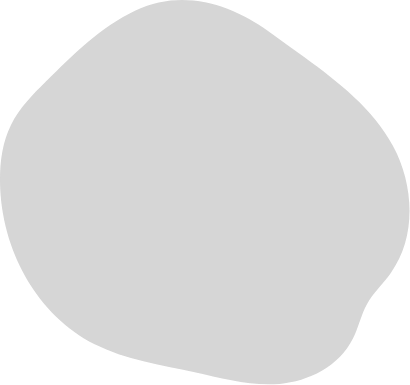Do you think that cultivating paddy following the organic method is not profitable?
Not only paddy but vegetables also will fetch us double the profit if we use chemical fertilizers. But the cost is the same. When the Agriculture Officer came here to take photographs, my husband was not here. So, he told me, “Why don’t you tell your husband to use chemical fertilizers too? In any case, the market price for both is the same.” But my husband does not approve of it. He says it will destroy all the earthworms. Therefore, bringing them back will be difficult. What we get is enough. Let me tell you another thing. We are growing tapioca in the lower plot. Its size is roughly this much. I shall show it to you. It is ready for harvest. But if we add a little potassium and wait for six months, the tuber will grow to twice its present size. Now, if I dig out the tapioca, I will get five kilos. If I add potassium, I will get 10 kilos. That is, my yield will become double. Right now, the tapioca has a fine taste, eaten raw or cooked. I don’t know how it will taste after chemical fertilizers are added.
You don’t get any additional profit by following the organic method, do you?
If I sell five kilos now, I will get Rs 200. Instead, if I add potassium and wait for two weeks, I will get 10 kilos. And I will earn Rs 400. Exactly double. Imagine the difference in profit, if I sell in quintals, or if I sell a ton. Our income will increase multi-fold but we won’t do it. Now, there are vacant spots in the land. If we add chemical fertilizers, the plant will grow into those gaps and fill the entire plot. That is, we will get double the produce. When we take this as organic products to the market, there is no difference in price. If the other farmer gets Rs 10, we may get only the same amount, or perhaps only nine rupees. The reason is that, in the auction system, one may not be able to sell at the same price as anyone else. Even if we claim that ours is organic, no one is going to test it. We don’t get good profit. But we think only about our happiness. Let us give others healthy food. That is why we take all this effort. We give people food that contains no poison. A lot of people come from far-off places, enquiring about our products.
How long have you been engaged in organic farming?
Ten years.
How did you come into it?
I went to Chingavanam to listen to Palekar’s class on raising indigenous cows. That was how I came to know about organic farming, and started it on an experimental basis. Two years later, I bought a cow. Thereafter, I began to use only the indigenous cow’s dung and urine for farming. I tried selling its milk but that did not take off.
We don’t get reasonable price for it.
Nobody wants it. In this neighbourhood, there are people who make crores of rupees. We told them that this milk is good for small children, it has a lot of health benefits, and so on. But their response was that their children did not drink milk at all. They depend on Milma milk.
You do farming not only in your own plots but take land on lease too, don’t you? How many acres do you do farming on?
Eight acres in all. But it is not the same every year. Sometimes, it is eight. Occasionally ten, or even five.
It’s organic farming only, isn’t it? What profit do you get from all this?
We don’t get much profit. The loss is caused by our climate. Last year, we did not do much of paddy cultivation because we were preoccupied with our house construction. We did not expect rain in January. But it rained for three days continuously and caused water-logging, when it was harvest time. We lost all our produce. The land became so miry that we could not harvest the grains using either people or machines. One acre of paddy land went waste. We did not get a single grain of rice.
This year’s harvest and threshing is over, isn’t it? How much profit or loss did you make?
There was neither profit nor loss. We did incur some loss, in terms of labour charges. Otherwise, we could have cut our losses. But we managed with the subsidy given by the Krishi Bhavan [Agriculture Office].
We work hard but do not get commensurable profit. Isn’t that the fact?
Not even a single rupee. But we get health. It fills up our time too. If we didn’t have anything to do, we would watch television and sleep all the time. But now we don’t have time to spare. As we are engaged all the time, we are healthy. True, we don’t get wages for our labour. Things have come to such a pass that 99 out of 100 families spend money on buying medicines. But members of our family don’t have to spend money like that. We don’t have to take medicines. You wear specs. I don’t. All I require is a bit of medicated oil with which to massage my legs. After that, I am fit. As the next day dawns, I’m ready for work. That is the greatest blessing.
When you grow vegetables, you will face pest attacks. How do you tackle it?
Jeevamritham has a certain smell that repels insects. Once we spread fertilizers and sow seeds, we wait till they sprout. Then we prepare Jeevamritham and spread it on the soil.
Even the hay you give your cows is organic, isn’t it, procured from the paddy that is not given any chemical fertilizers or sprayed with chemical pesticides?
Yes. The use of organic fertilizers increases the yielding time. If we use chemical fertilizers, the soil will become dry and the plants will live only for a short period of time. Take bitter gourd, for instance. If we give it chemical fertilizers, the vine will live only for a year. But with organic fertilizers, it will live for three months.
I haven’t heard anyone say that organic fertilizers improve the longevity of plants.
We speak from our experience. This bitter gourd lived on for three more months after we poured diluted Jeevamritham here. A man from Chembanadukara came here and started farming. We didn’t know anything about farming then. He showed us the method. In the beginning, he planted ash gourd. In the first year, he did not get much yield. But the next year, the place was flooded with ash gourds.
You might not have got much money for it, then?
Indeed. A kilo fetched only 50 paise! But we had leased the land to him. So, we didn’t have to work. But we helped him collect the gourds in baskets, place them on the weighing scales, and so on. That was how we came to realize farming could actually yield profit. Until then, we would plant one ash gourd vine. It would produce four or five ash gourds. We would make curry from it. That was all. We had not seen farming in or harvest of such bulk quantities. We didn’t know about it. He was the person who taught us farming. He did it for 30 years and stopped when he got involved in an accident and could no longer work hard. It was from him that we got the energy to work and switched to farming. We will do it as long as we can.
You have your son’s support in farming, isn’t it?
Even if he tells us to stop, we won’t! We do everything after consulting him. Only then will we have a happy, contented family, isn’t it? Even when my daughter comes here, if I say I have to go out in order to cut grass, she takes a sickle and joins me in the effort.
How educated is she?
She studied nursing and used to work. But now she doesn’t. Her mother-in-law is unwell after a paralytic stroke.
When we brought a tiller from the Krishi Bhavan, it developed a problem on the field. That was the time when our son had come on a visit. He tinkered with the machine and rectified it. He didn’t know anything about that machine. But being a mechanical engineer helped.
He is a mechanical engineer?
Yes. The local people remarked that a boy who was drawing a decent salary was being made to stand in the mire. I replied that the mire was only on the field. But he had fine brains in his head! We struggled a lot to give our children good education. We haven’t made much wealth. So, our children know how hard we have worked. When we run into losses, they don’t complain. They only ask why we continue to struggle like this.
Both of you get a lot of satisfaction from farming, don’t you?
We get good sleep. Isn’t good sleep an indication of good health?
You have proved that through organic farming it is possible to grow good food. When we consider our own requirements, the question about profit or loss doesn’t arise. Health is of paramount importance.
Only if the market is vibrant will we get any profit. If we get five rupees in the market, it doesn’t cover the labour cost. Instead of five, we should get Rs 20-25 to offset the investment. This year, we got good price for our ash gourd. It went up to Rs 20 or 30. Two years back, we did not get even Rs 10 for a kilo of elephant yam. But now a kilo fetches Rs 50.
Is it because the yam is organic?
No. The market gives no special value to organic products. That is all in our minds. But it works in the case of rice. People who come here to purchase rice want it because it is organic. But in the case of vegetables, such a thought does not matter in the market. Those who believe in Jnavarakkizhi [a kind of Ayurvedic massage] and Karkadaka kanji [medicated rice porridge usually consumed during July-August, during the rains] come here to purchase organic jnavara rice. As we don’t use chemical pesticides, we have many medicinal plants in our plot – like Gale of the wind [Phyllanthus amarus], Lesser balloon vine [Cardiospermum halicacabum], Spreading hogweed [Boerhaavia diffusa]. We had a lot of Spreading hogweed in the plot below but now they have disappeared. Besides these, we have the golden fruit [Physalis peruviana], Little gooseberry [Physalis minima], Goanese Ipecac [Naregamia alata] and so on. There is an Ayurvedic physician at Pathammala who is willing to give anyone herbs from his garden plot. People come here for Goanese Ipecac. If ground well, mixed with what is locally known as “kaadi” [the water in which rice grains have been washed] into a paste consistency, and applied on swollen knees, it will cure oedema. During Onam, a lot of people come here to collect Leucas aspera (locally known as “thumbappoo”). We get enough flowers to fill a vehicle!
A lot of insects also come here, don’t they? When there are such plants, that is inevitable . . . True, there are a lot of insects in the garden plot. We don’t kill them but we ensure they do no attack our vegetables. When fire broke out at Brahmapuram, all the honey bees disappeared from here. Honey bees are the insects that ensure food for all of us. Because of their disappearance, farm produce will be less in Ernakulam district this year.
The persons you were introduced to are Rajan Chettan and Lizzy Chechi. I very much wanted their children also to join us today because their growth was ensured by the family’s involvement in agriculture, and despite finding jobs in other sectors, they continue to help their parents pursue their passion in farming. What you heard was the story of organic farming. If an organic farmer has no alternative source of income, that will be really risky, because the marketing of organic produce does not enjoy a very favourable climate in our land. People do not fully understand its importance. They may spend lakhs on medical treatment in ICUs and ventilators but have no idea whatsoever about how important organic farming is in order to keep diseases at bay. That is a very pathetic situation indeed.



